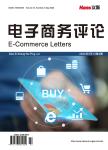数字经济赋能文旅融合的理论机制与实证分析
Theoretical Mechanism and Empirical Analysis of Digital Economy Empowering Cultural and Tourism Integration作者机构:贵州大学旅游与文化产业学院贵州 贵阳
出 版 物:《电子商务评论》 (E-Commerce Letters)
年 卷 期:2024年第13卷第3期
页 面:6545-6556页
学科分类:12[管理学] 120203[管理学-旅游管理] 1202[管理学-工商管理]
摘 要:以2011~2020年中国30个省份的面板数据为样本,采用双向固定效应模型,实证分析数字经济对文旅融合的具体影响效应。研究表明,数字经济的发展能有效推动文化与旅游产业的深度融合,这一结论在经过严格的稳定性检验之后依然保持成立;数字经济通过技术市场发展与电子商务发展等路径间接促进文旅融合的发展;异质性检验结果显示,数字经济在促进文旅融合方面的作用在西部地区和中部地区表现尤为突出。基于此,提出大力发展数字产业化策略、建立健全技术市场化机制、营造积极良好的电商环境等建议。Utilizing panel data from 30 Chinese provinces from 2011 to 2020, this study employs a two-way fixed effects model to examine the precise impacts of the digital economy on the convergence of culture and tourism. The findings indicate that the digital economy substantially elevates the degree of integration between culture and tourism, a result that remains consistent after robustness checks. Additionally, the digital economy fosters the advancement of culture and tourism integration indirectly by facilitating the growth of the technology market and e-commerce. Furthermore, the results of the heterogeneity analysis reveal that the digital economy’s influence on the integration of culture and tourism is particularly pronounced in the central and western regions. Accordingly, it is proposed to vigorously develop a digital industrialisation strategy, establish a sound technology market mechanism and create a good and favourable e-commerce environment.



